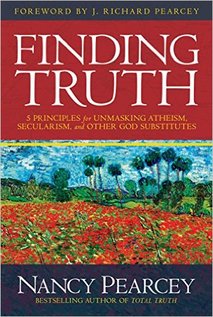
It’s easy to miss the substance of what Paul writes in this verse both because it is such a well-known scripture, and because most major English versions of the Bible translate it in essentially the same way. The idea of “speaking the truth in love” has thus taken on a kind of life of its own – a kind of poster scripture for the idea of spiritual “tough love,” which is based in concern, but doesn’t hold back on the truth.
To some extent, this idea is contained within what Paul writes in Ephesians 4, but it is only a small part of it at best. If we look more closely at verse 15 and consider it in context, we see the verse carries far more meaning – both specifically and in a broader general sense. Looking at the context of “speaking the truth in love” is not as obvious as it may sound in regular Bible reading because the context actually begins quite a few verses earlier. But we need not guess what the context is. If we patiently read backwards from verse 15 we will come upon the specific subject Paul was discussing, and we find that subject in verses 11-12:
“So Christ himself gave the apostles, the prophets, the evangelists, the pastors and teachers, to equip his people for works of service, so that the body of Christ may be built up”
If that doesn’t immediately connect in our minds with “speaking the truth in love,” notice the very next verse (Ephesians 4:13):
“until we all reach unity in the faith and in the knowledge of the Son of God and become mature, attaining to the whole measure of the fullness of Christ”
Do you see it? Verses 11 and 12 say Christ gave the various offices of the Church to prepare and equip his people for service – until we come to maturity in him (vs. 13), which is exactly the reason Paul gives in verse 15 for speaking the truth in love.
But let’s look at that expression a little more closely. The Greek Paul wrote is “alētheuontes de en agapē” which is literally “being true, yet in love.” The first word there – a form of alētheuō – can mean to speak the truth, teach the truth, or live the truth. This is important because the second meaning – to teach the truth – is obviously involved in the context of Ephesians 4. Paul is talking about the various types of preachers and teachers in the Church, and he doesn’t just mean they should not lie, but that they should teach the truth – that’s how the Church then grows into the stature of Christ (vs. 15).
Notice that the third meaning of alētheuō is that of living the truth. This may apply in this verse also. Clearly, it is only as we live the truth, not just profess it, that we grow towards the stature of Christ. That is why the Revised version, in Ephesians 4:15, gives an alternate translation of “speaking the truth” as “to deal truly,” and the Douay Rheims version translates it “doing the truth in charity.” The Amplified Version expands on this aspect of the verse by paraphrasing: “let our lives lovingly express truth [in all things, speaking truly, dealing truly, living truly]” (AMPC).
So when we look closely at Ephesians 4:15, the focus of the verse in context is one of the responsibility for those who handle the word of God to teach the truth, and the responsibility all of us have to make truth a part of our lives of love. The emphasis is not on our telling others the truth they need to hear – as in the “tough love” kind of truth we give – but on the true love kind of truth we live.



 RSS Feed
RSS Feed
